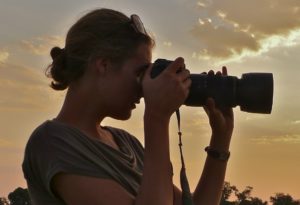How much does it cost to go on safari?
The variety of options are as diverse as the people we work with, which is why I believe so strongly in custom-designed travel and the value in working with an expert. ”Custom” doesn’t necessarily mean a higher price tag, but it does ensure that you will get exactly what you want—and personal attention along the way.
Basic Guidelines
Trip length, time of year, destination, and activities are all driving factors of cost. But because our team is most knowledgeable about properties rated four stars and above, our minimum budget for trip planning is $7,000 per person sharing accommodation, excluding the cost of international airfare.
This figure is most easily attainable with a classic trip to South Africa, including some time in Cape Town, the Winelands and/or the Whale Coast, plus three to five nights of safari.
If your heart is set on a Tanzanian safari to follow the Great Wildebeest Migration during peak season, plan on budgeting at least $1,000 per person per day for a solid four-star experience.
In Kenya, $1,000 per day, per person is a good starting point, but factors like seasonality and the Great Migration play a major role. Read more: How Much Does a Kenya Safari Cost?
Botswana’s safari prices can rise and fall as dramatically as the Okavango Delta’s seasonal flood waters. Here’s a deep dive that answers How Much Does a Botswana Safari Cost?
What does a safari cost? Safaris cost anywhere from $500 per person per day to $3,500 per person per day, so it really depends on your timing, preferences, and destination.
What makes up the cost of a safari?
Due to the lack of infrastructure, there are a lot of logistics that go into making your safari experience extraordinary.
What does a safari cost? Each camp charges a per-person rate in order to fly in weekly provisions, provide electricity in areas without any, build and maintain the roads around your camp or lodge, and maintain the property through all the elements nature brings. This fee is also used to pay the staff that you see while in camp—and the many people behind the scenes who you may never see. (Whether or not there are guests present, many staff work and live in the camps year-round to keep things running smoothly.)
There are daily park fees and concession fees for every area you visit. These help protect the wild areas and, in many cases, provide funding for much-needed conservation work, as well as community initiatives.
Keep in mind that your time on safari is typically fully inclusive of meals, snacks, drinks, laundry, and activities; the value of this cannot be overstated!
Finding the Best Value
As a rule of thumb, the more time you spend on safari, the higher the cost. Combining time on safari with a stay in the city, on the beach, or at Victoria Falls is a great way to stretch the length of a trip without tipping the scales.
If you’re looking for the best value for money, traveling during “secret season” or “green” season will drive great value. It’s during these months that camps offer compelling discounts as deep as 60% off peak season pricing. Long stays (three-plus nights) are often incentivized, and working with a portfolio of camps under the same ownership may further drive value.
To give you some ideas about the many different paths a safari can take, here are five itineraries across several price points:
- Romantic Getaway in Southern Africa– $5,669-$6,090 per person
- Explore Northern Tanzania – $6,530-$10,421 per person
- Travel with Family: Kenya’s Private Bush Homes – $8,398-$9,625 per person
- Off the Beaten Path Across Southern Africa – $10,643 – $15,321 per person
- Ultra-Luxurious Safari in Botswana – starting at $14,963 per person
Plan your Trip
Ready to start planning your own incredible adventure? We make the process stress-free and enjoyable.
